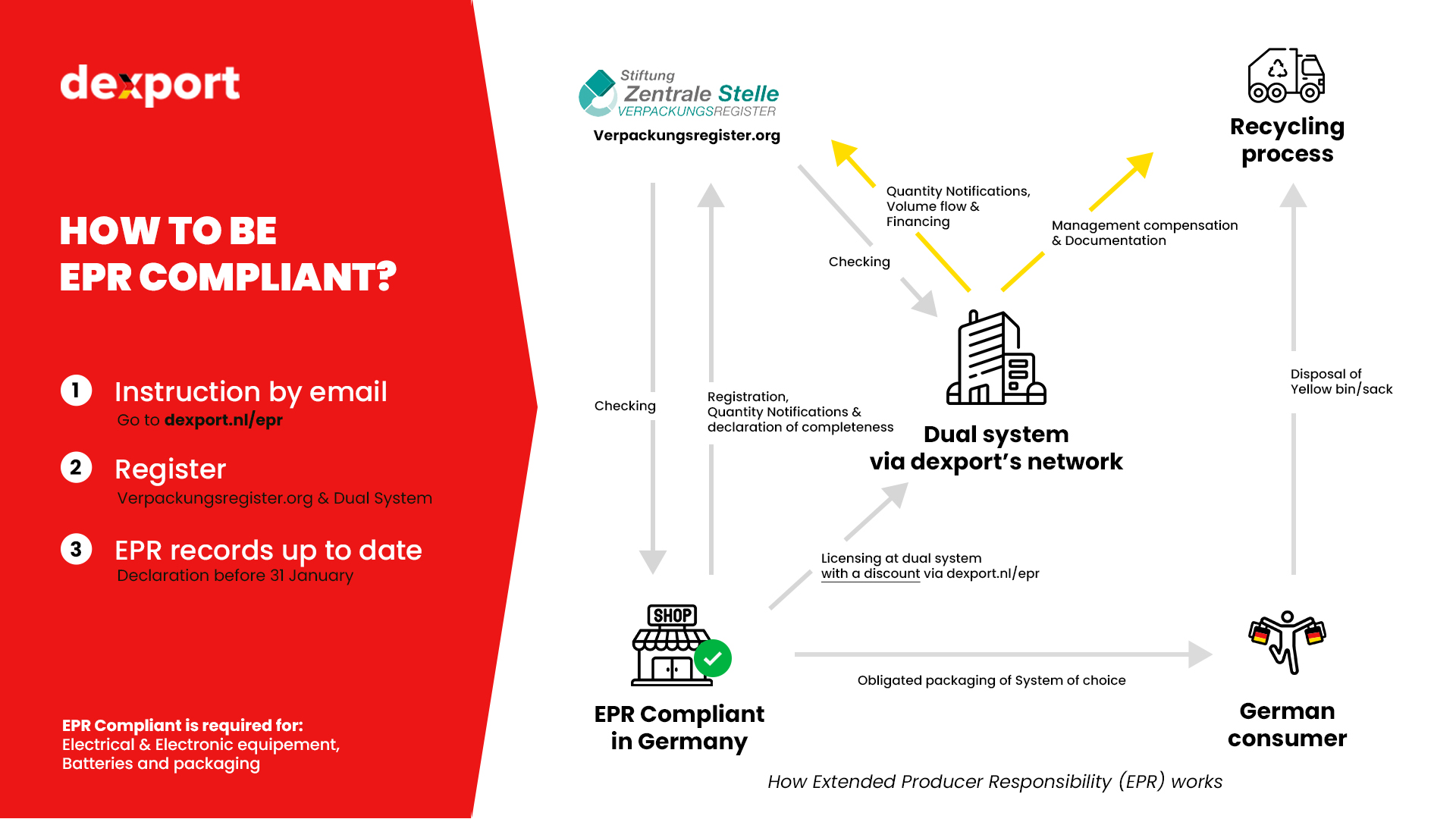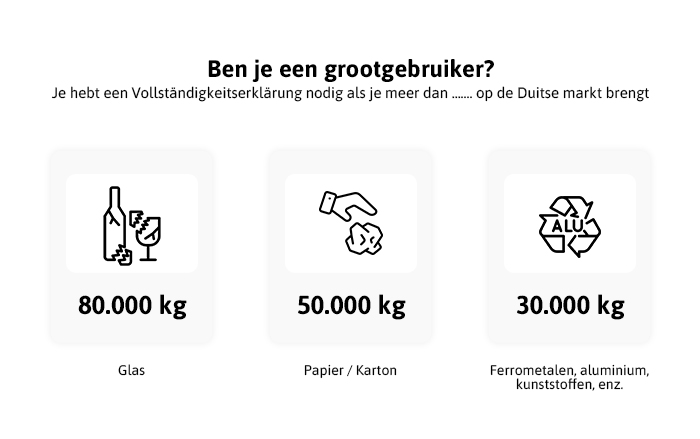Whether you are a manufacturer, supplier or seller, you must have your EPR records in order in Germany. If you sell electronics then WEEE comes into play. If you don't arrange this, you risk a fine or even an export ban. How does that work?
For example, if you sell products through a German webshop or marketplace such as Amazon, you are required by packaging law to register with LUCID's Zentrale Stelle Verpackungsregister (ZSVR), and a Dual System. You get an EPR number after registration, which you also need for selling on marketplaces. It doesn't stop there.
You then have to report the amount of packaging put into circulation each year and give an indication of consumption for the coming year. You have to provide the indication before the end of the year and the actual quantity for the previous year before January 31 if you arrange your EPR registration through Dexport. Based on your estimate, your annual rate will be determined. Large users must also submit a Vollständigkeitserklärung (VerpackG) through an approved accountant. Are you starting to get dizzy already? In France, it's even more complicated. Don't worry, we will help you on your way in Germany and through Dexport's network you will also save money. You can here request an instructional email here.
To whom does this apply
First, the registration requirement applies to producers who use cardboard packaging. So if your brand is on the packaging, it is very likely that you are responsible for recycling and registration. This includes both primary and secondary packaging (shipping packaging). For example, consider shoes in a shoe box. The shoe goes into a shoebox; this is the primary packaging. A number of shoe boxes are then placed in a large outer box, the secondary packaging. The logo on the packaging often determines who is responsible for the EPR. So a Nike box in a Zalando outer box has two people responsible. But if a Nike shoe box is in a shipping package that has Nike's logo on it, Nike is responsible for both.
If you are not a manufacturer, but you do sell products covered by the EPR regulations, you must obtain the EPR registration number from the supplier. This is, for example, the wholesaler who has already imported the products. If you do not get the EPR registration number from the supplier, but still sell the products in question, you must register the registration number yourself.
Annual commitment
You must annually declare the amount of packaging you put on the German market to this register and to a Dual System. In doing so, you must also estimate the amount of packaging for the coming year. A distinction is also made between material types. Your annual rate is then calculated based on your estimate. You can compare it to how energy suppliers calculate monthly rates. You must submit your declaration to the Dual System by January 31 of each first if you do it through Dexport's network, and ideally to LUCID on the same day or shortly thereafter. This is because the Dual System is required to file a report with LUCID after the declaration. So LUCID already has the information, but it says in German law that you also have to pass it on to LUCID yourself for completeness. Moreover, for wholesale consumers, LUCID still has an end date of May 15. This is for consumers who use 50,000 kilograms or more of paper and/or cardboard, and/or 80,000 kilograms or more of glass, and/or 30,000 kilograms or more of other materials. In that case, you also need a so-called Vollständigkeitserklärung from an external auditor who has special authority to do so.
What should marketplace sellers do?
If you sell on marketplaces such as Amazon, Zalando or eBay, you must enter your EPR registration number in your marketplace account. You obtain this when you have registered with LUCID. Without this number, you won't get your products live. As a result, you miss out on all your sales from Germany from your marketplace and that would be a shame. Amazon describes the registration as "environmental policy" because it makes the seller responsible for the entire life cycle of the products sold, including waste disposal.
What if you sell electronic products or batteries?
It is not just packaging materials, but also electrical and electronic equipment and batteries. Since electronics and media fall into the second most popular product category in Germany, it is important not to miss out on sales here as well. In addition to providing an EPR registration number, marketplaces also require you to provide a WEEE number if you are a manufacturer, distributor or seller of electronic devices. WEEE applies throughout Europe, but you must register for each country. In Germany, you must register for this at stiftung elektro-altgeräte register (ear). This involves costs depending on the situation and quantity, which are calculated by ear on a case-by-case basis. This also applies, for example, to withdrawing your registration. A complete overview can be found on the ear website.
How do the EPR regulations actually work?
The German ZSVR office launched the LUCID packaging register in January 2019. Since then, all companies selling products to German consumers have been required to register and declare their annual packaging weights. EPR stands for "Extended Producer Responsibility" and is mandatory for all selling parties who use cardboard packaging, whether online purchases or not. The basis for EPR is not a law, but a composite of various laws and directives. In German law, this includes the laws on the packaging register (VerpackG), as well as the laws on electronic registration requirements (ElektroG) and battery registration requirements (BattG). In Germany, EPR registrations are maintained in the LUCID packaging register of the Zentrale Stelle Verpackungsregister (ZSVR).
France leading the way in EPR registration
If you sell in multiple countries, it can get complex. This is because the problem is that each country has its own rules regarding waste legislation. Anyone selling their products through Amazon, for example, must fulfill different obligations in each country and have a unique EPR number for each country. France has as many as 12 areas where EPR registration applies. Since 2022, this includes toys, sporting goods, and garden and DIY supplies. If you have not yet submitted a registration number to Amazon France, but you sell products to customers within France that are covered by the EPR, Amazon pays an eco-contribution to the organizations they partner with.
But that doesn't mean this is free. Amazon will recover these payments from you at the end of each quarter or year, depending on the EPR category. Moreover, the French Agec law provides that more categories will be added to the EPR in the future. So it is important to arrange and keep your EPR registration up to date in France as well, to avoid incurring unnecessary expenses.
Take action before January 31
Make sure you have your EPR and WEEE registration in place before you start selling in Germany. If you fail to do so as a company, you risk fines of up to 200,000 euros or even an export ban. In fact, LUCID will issue a notification if you fail to comply. But don't worry, we are happy to help you on your way.
You can request an instructional email with a discount code to join Dexport's network here.
P.S. By the way, EPR also stands for oak processionary caterpillar. This critter can do a lot of damage and it's hard to do anything about it. Fortunately, you can take responsibility for your EPR registration and fight environmental pollution directly in the process. Nice right?




